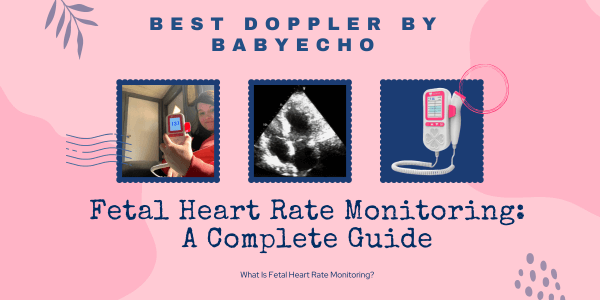What is the Normal Range for a Baby Fetal Heartbeat?
Introduction
Monitoring the health of a baby during pregnancy is crucial, and one of the primary indicators of well-being is the fetal heartbeat. Understanding the normal range for a baby's heartbeat can provide reassurance to expecting parents and help them know when it's necessary to seek medical advice.
Understanding Fetal Heartbeat Rates
The fetal heartbeat is an important parameter that doctors and parents alike monitor to assess the health of a baby during pregnancy. Typically, the heartbeat can be detected by a fetal doppler as early as 6 weeks into the pregnancy, and it offers the first audible glimpse into the baby’s wellbeing.
Factors Influencing Fetal Heartbeat
A variety of factors can influence the rate of a fetal heartbeat. Generally, a normal heartbeat ranges from 110 to 160 beats per minute, but it can vary throughout the pregnancy. Factors such as the baby's activity level, the time of day, and the mother's physical and emotional state can all influence the heart rate.
How to Monitor a Fetal Heartbeat at Home
With advancements in technology, expecting parents can now monitor the fetal heartbeat from the comfort of their home. A fetal doppler is a handheld ultrasound device that can detect the heartbeat and is relatively easy to use.
Choosing the Right Fetal Doppler
When selecting a doppler for pregnancy, look for devices that are FDA approved for safety and reliability. The BabyEcho Fetal Doppler is an excellent choice, known for its accuracy and ease of use. This device allows parents to hear their baby’s heartbeat clearly, providing peace of mind throughout the pregnancy.
What is a Normal Fetal Heartbeat?
The normal range for a fetal heartbeat is generally between 110 and 160 beats per minute. However, this range can vary depending on the stage of pregnancy. For instance, the heartbeat may be slower in the early stages and then increase as the pregnancy progresses. Regular monitoring can help parents track changes and discuss them with their healthcare provider.
When to Consult a Healthcare Provider
While home monitoring with a fetal doppler can be reassuring, it is important to understand its limitations. If you detect any abnormality in the heartbeat, such as a rate too slow or too fast relative to the typical ranges for the pregnancy stage, it is crucial to consult a healthcare provider immediately.
Conclusion
Monitoring the fetal heartbeat is a simple yet effective way to keep an eye on your baby’s health during pregnancy. Using tools like the BabyEcho Fetal Doppler, parents can stay connected with their unborn child and be reassured of their development. Remember, while home devices are helpful, they do not replace professional medical advice.
By understanding and keeping track of the normal fetal heartbeat ranges, expecting parents can better manage their pregnancy journey with confidence and peace of mind.







Leave a comment
All comments are moderated before being published.
This site is protected by hCaptcha and the hCaptcha Privacy Policy and Terms of Service apply.